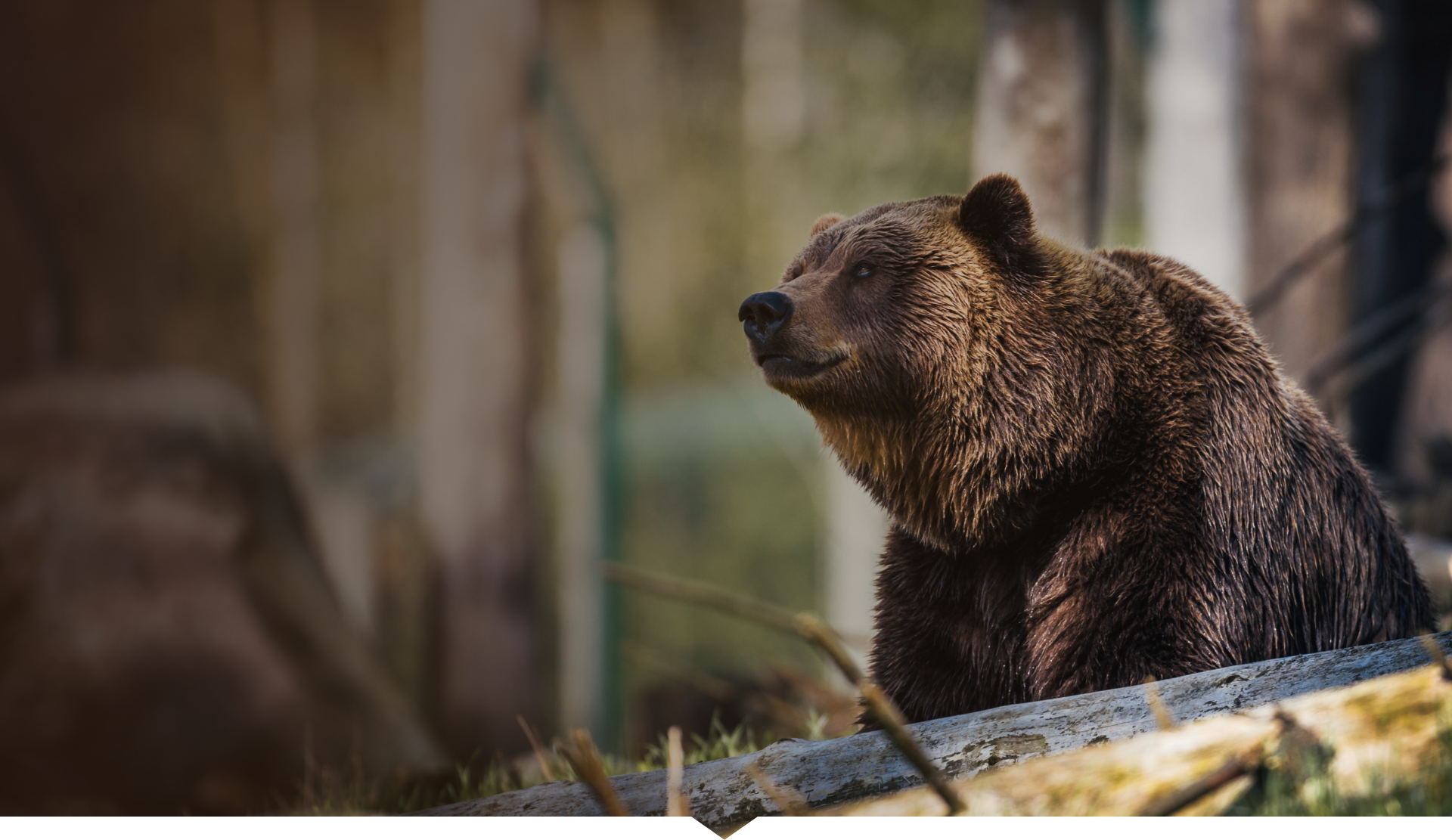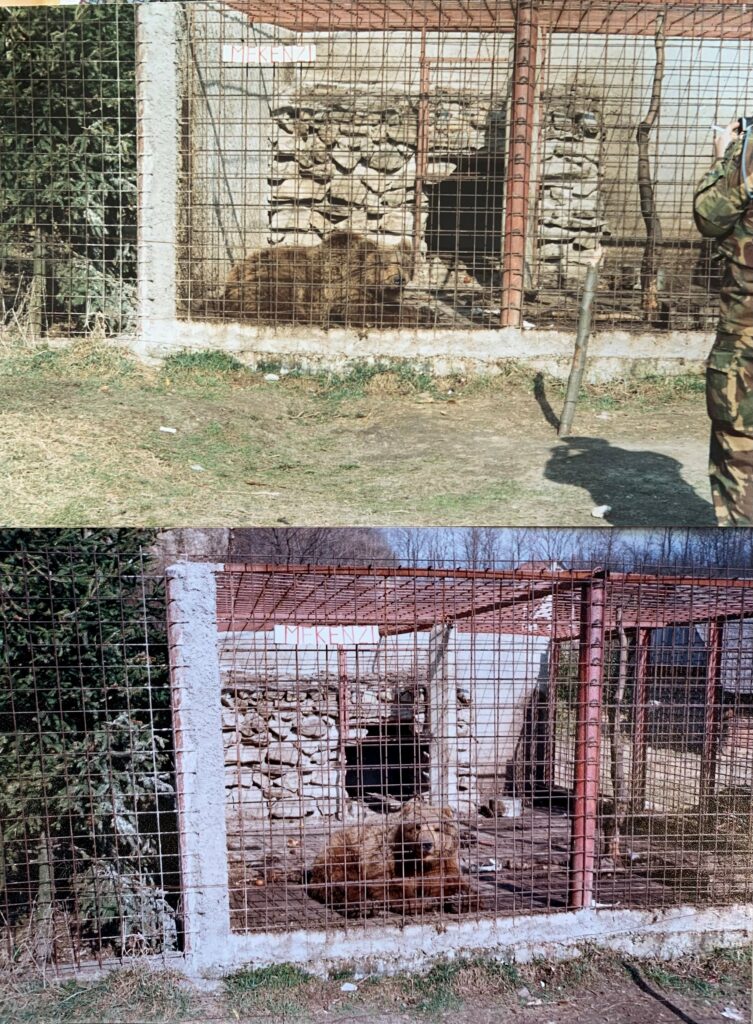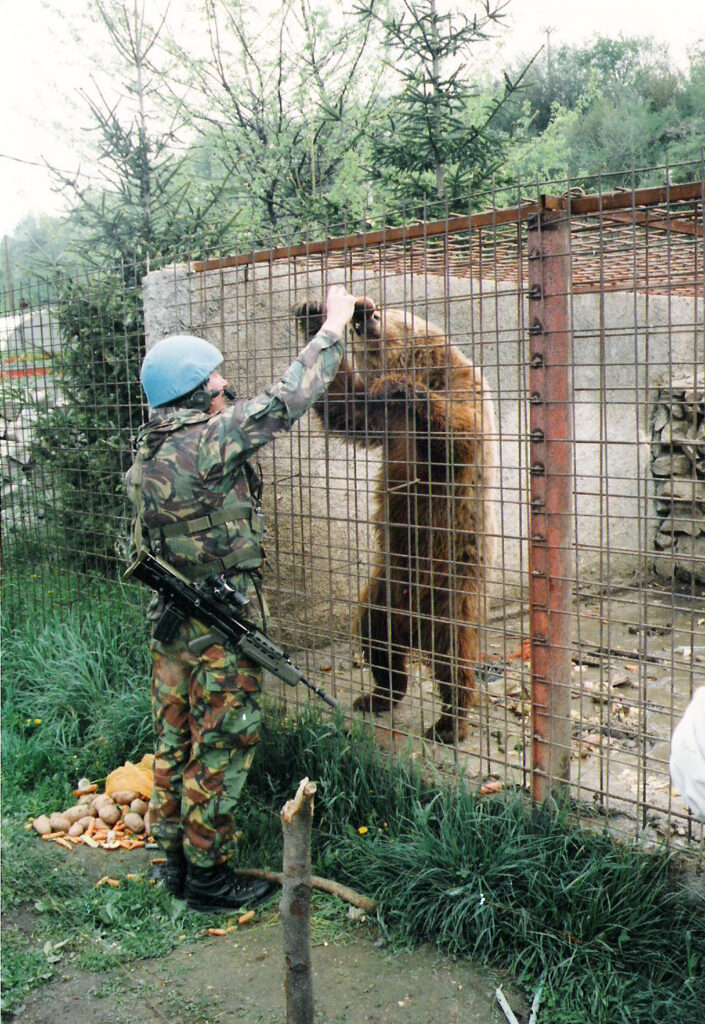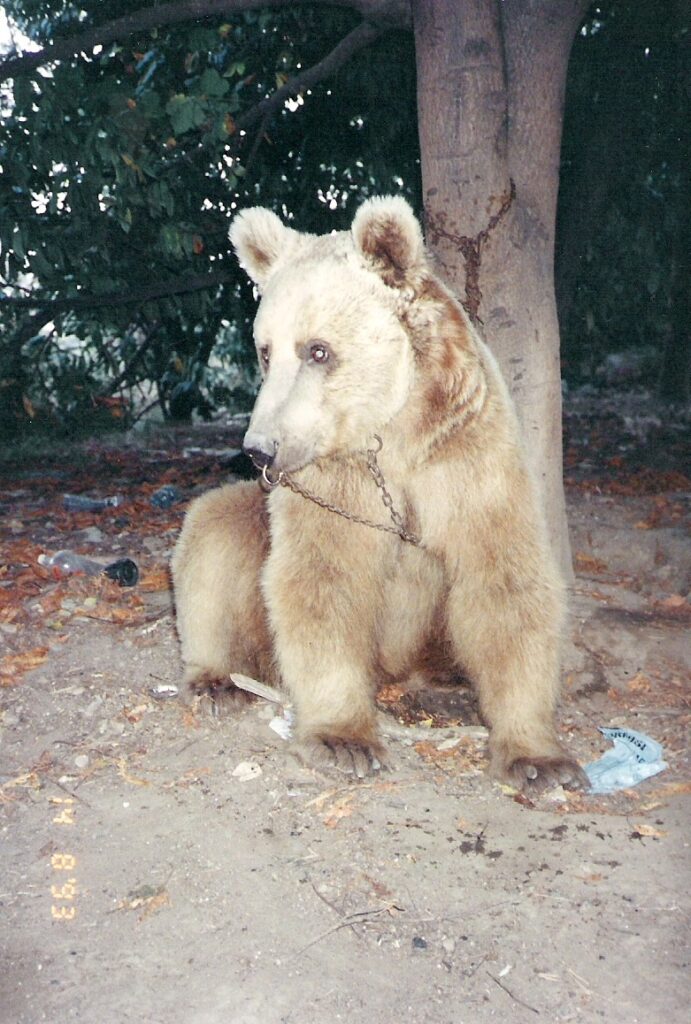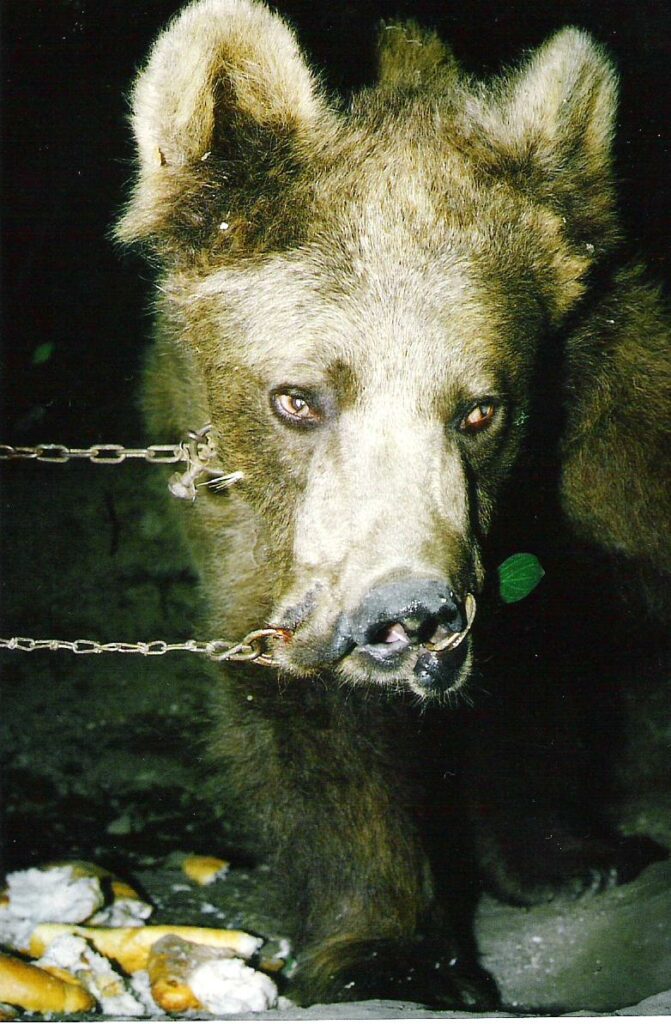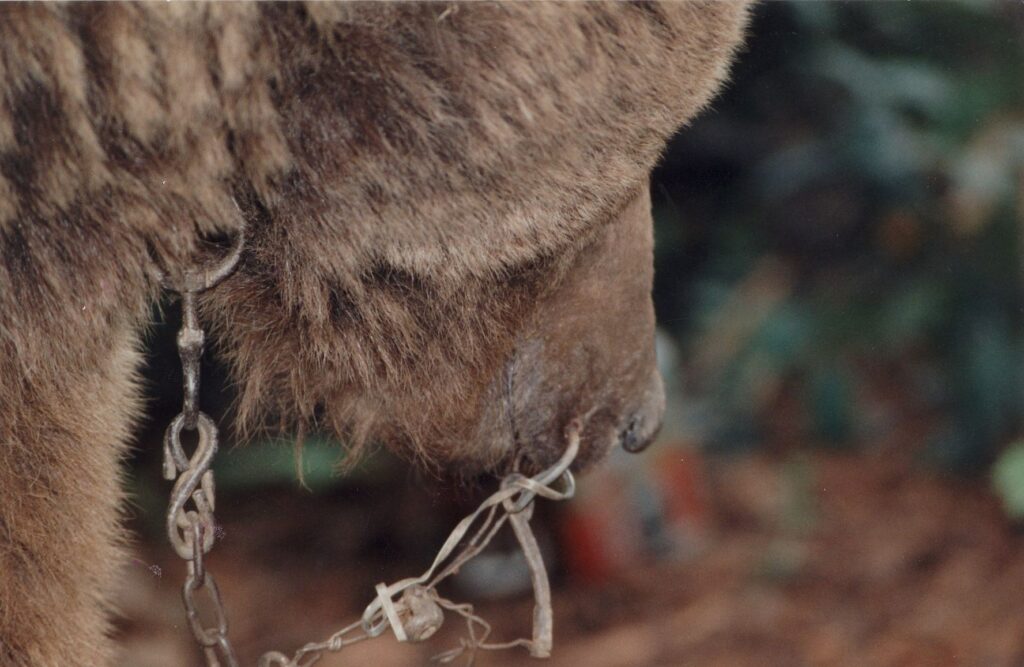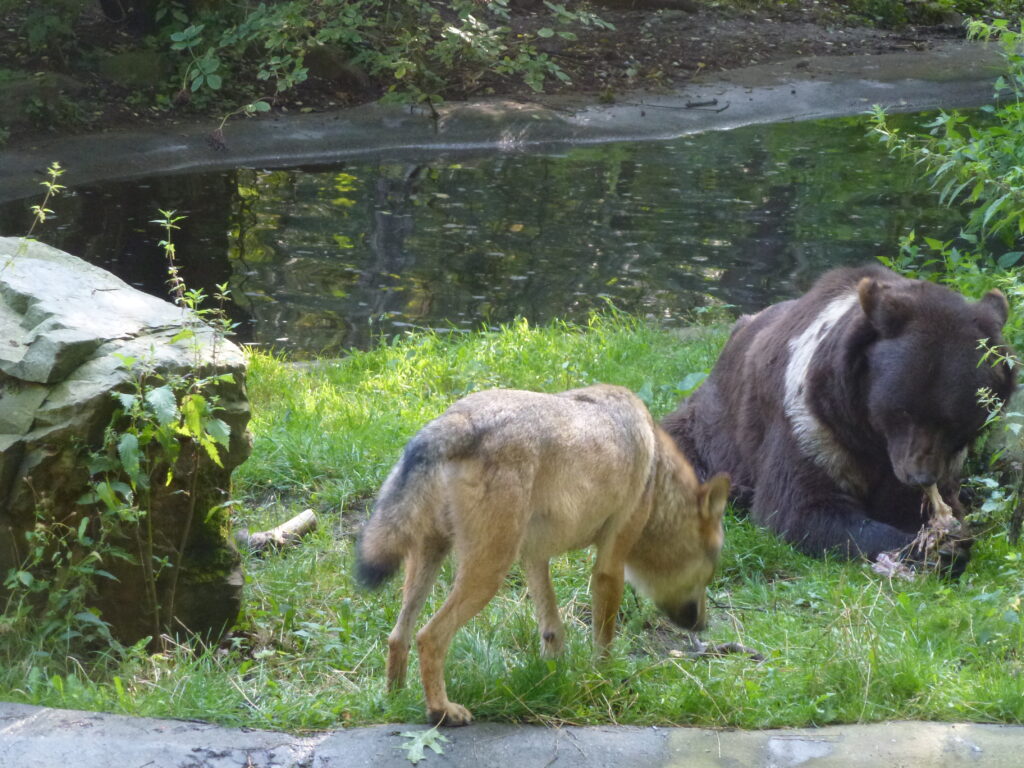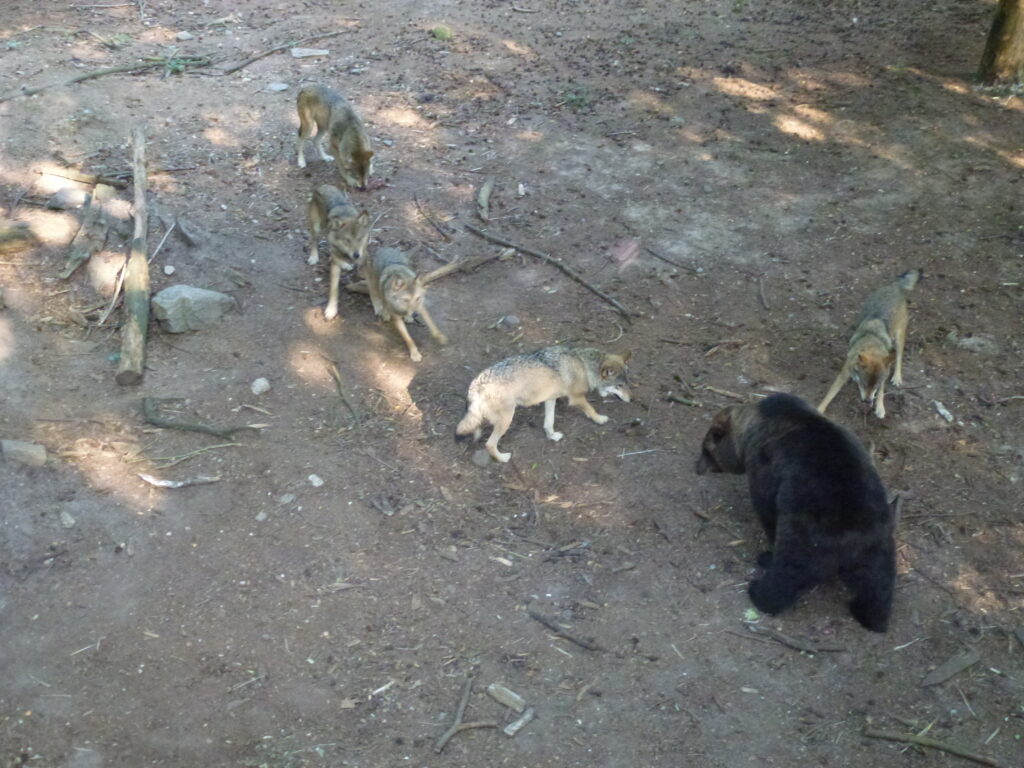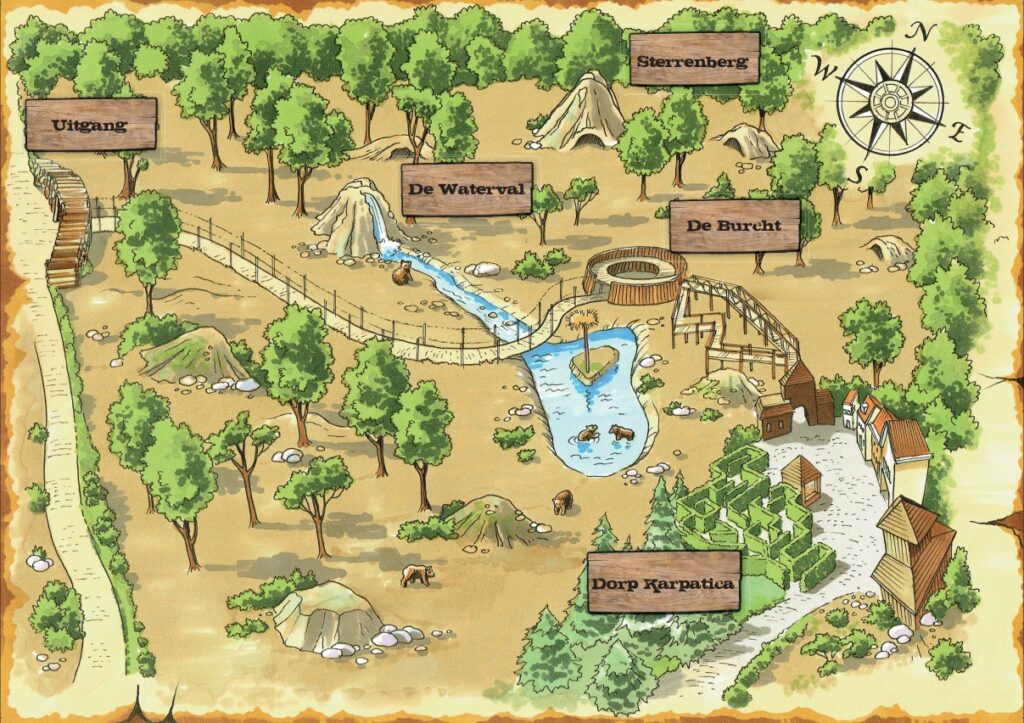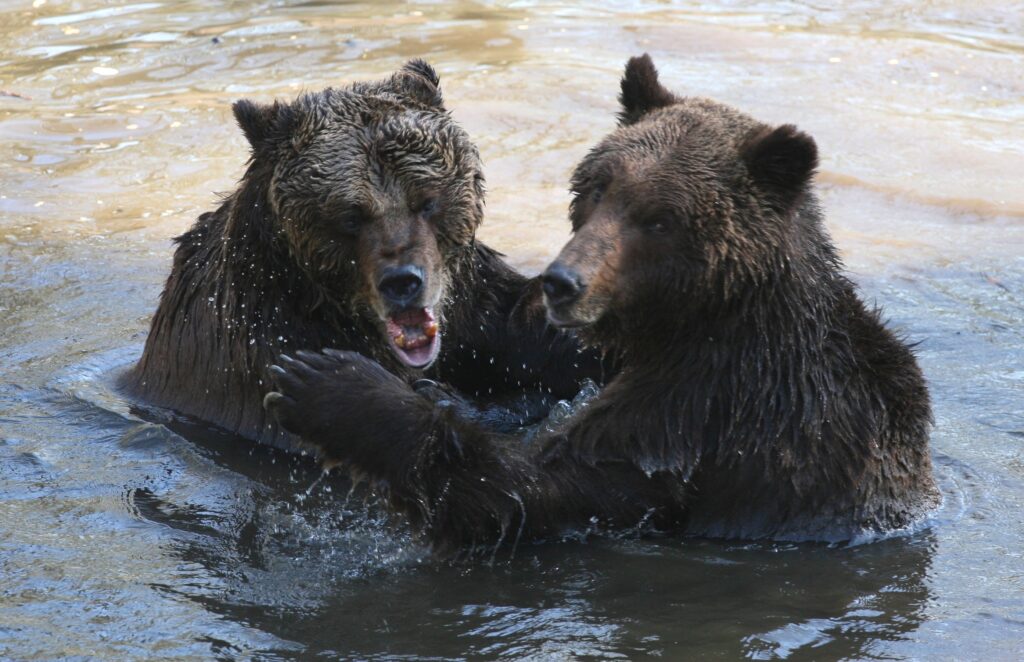On this page, the latest bear rescue mission will be published.
June 3, 2025 – Bears Alu & Balu from Azerbaijan
For more than 1,5 years we have been busy preparing the relocation of two brown bears from a local bear shelter in Azerbaijan. It started with a veterinary intervention mission by Four Paws International in 2023 and 2024, to medically help the 15 bears kept at the shelter and the seven bears kept at a nearby hotel. Bears in Mind joined in the early stages to find a suitable home for several of the bears, amongst them the male brothers Alu (now renamed Benji) & Balu. Wildheart Animal Sanctuary in the UK offered to build a new home for the 12-year-old siblings. The local partners and responsible ministry in Azerbaijan, Wildheart Trust and Bears in Mind worked on the necessary permits, letters and other documentation needed for their export to the UK. Four Paws International provided assistance to these processes.
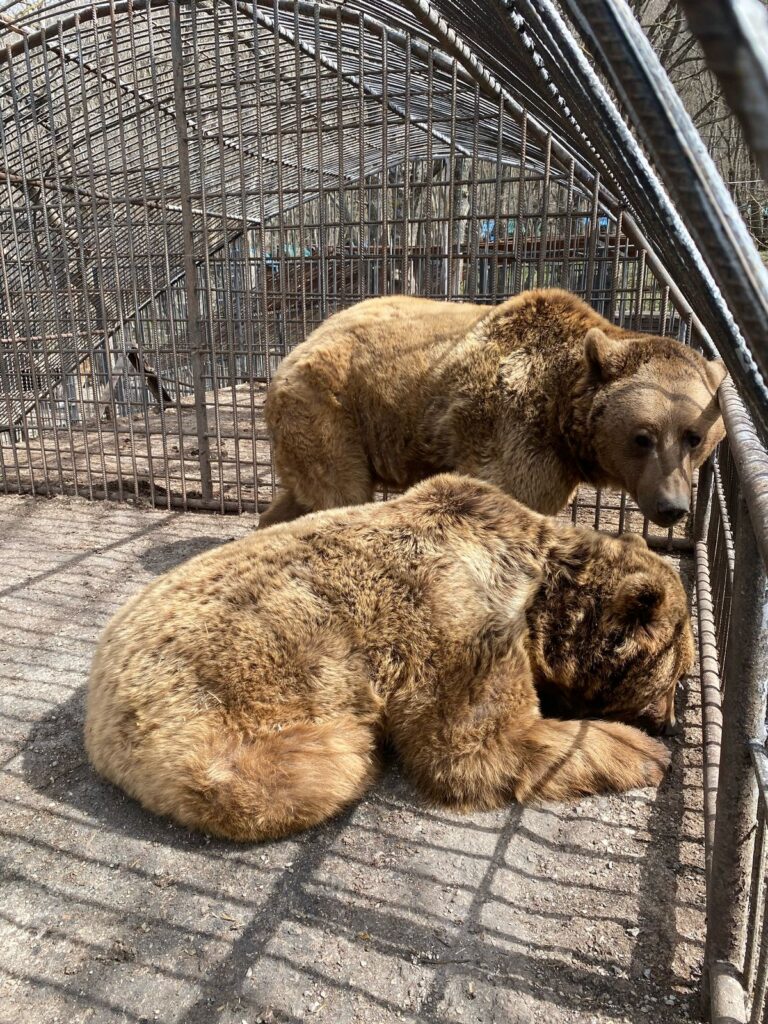
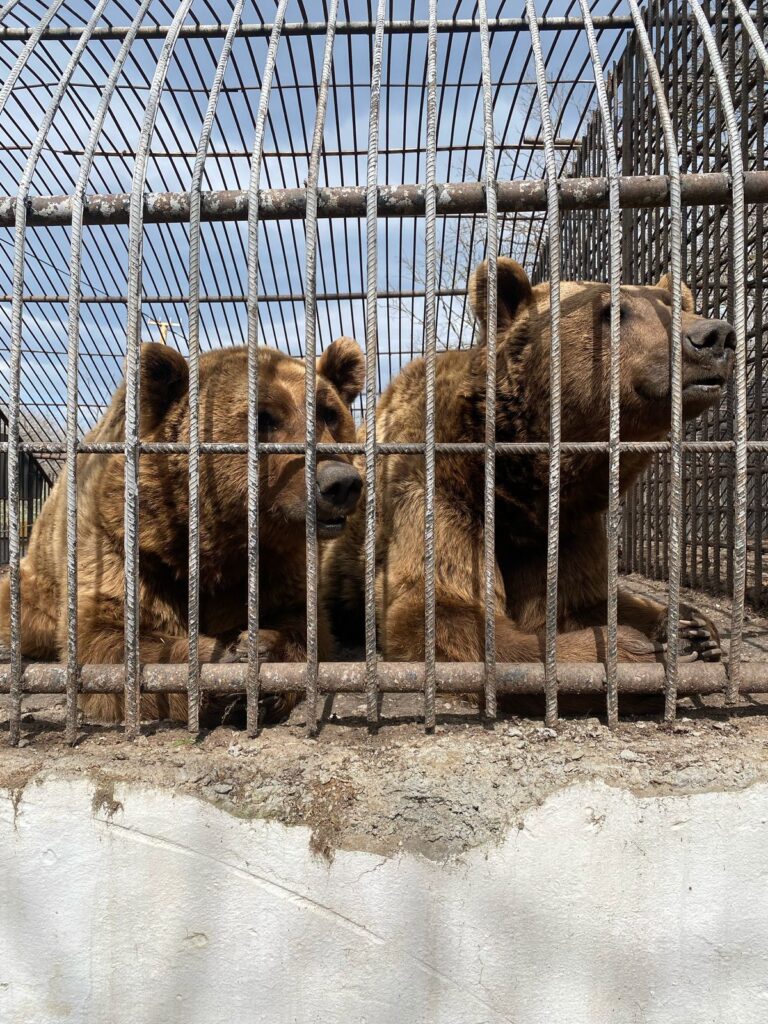
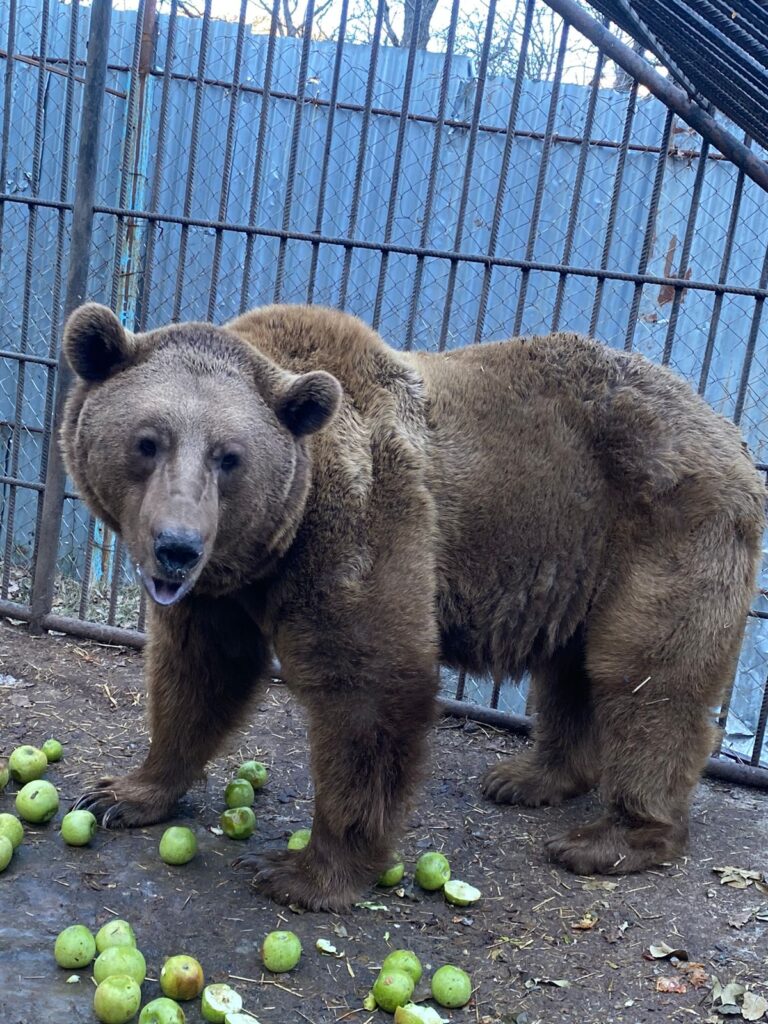
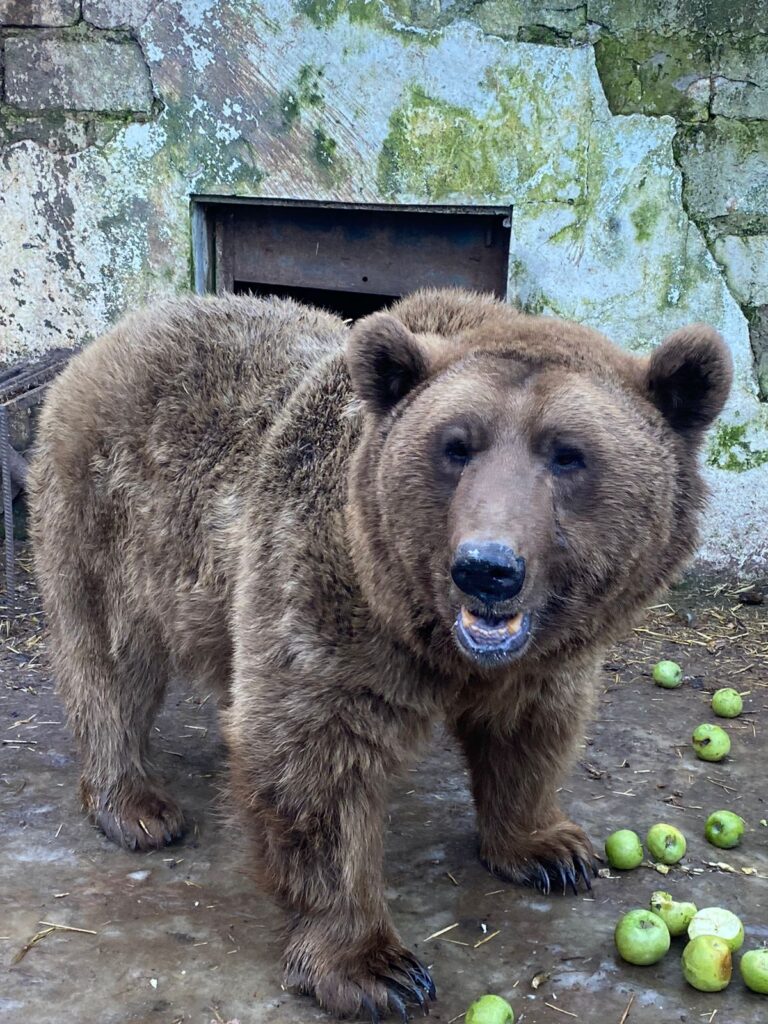
Wildheart set up a very successful crowdfunding campaign to secure the much needed funding for the construction of the new bear enclosure. Recently, the international cargo airline Cargolux stepped in and offered to sponsor the flight of the bears from Baku in Azerbaijan to the UK!
The UK team from Wildheart, including the vets from IZVG, landed in Azerbaijan on June 1st. They prepared everything and worked on the bears on June 2nd, sedating them at the end of the day and moving them into the transport crates.
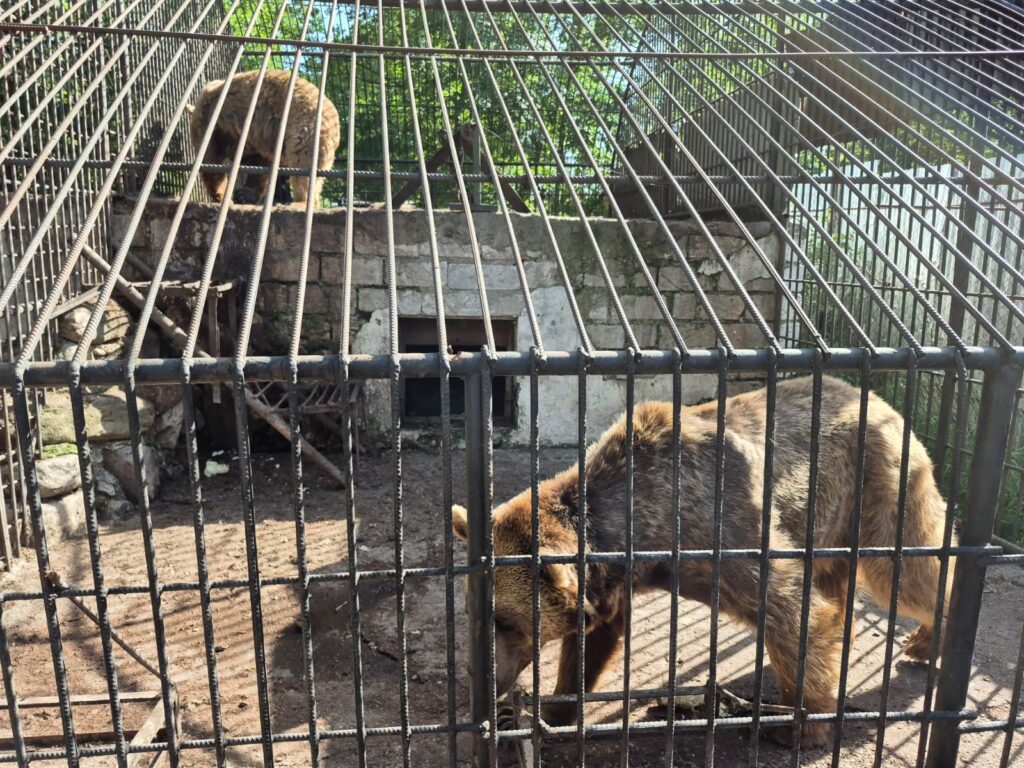
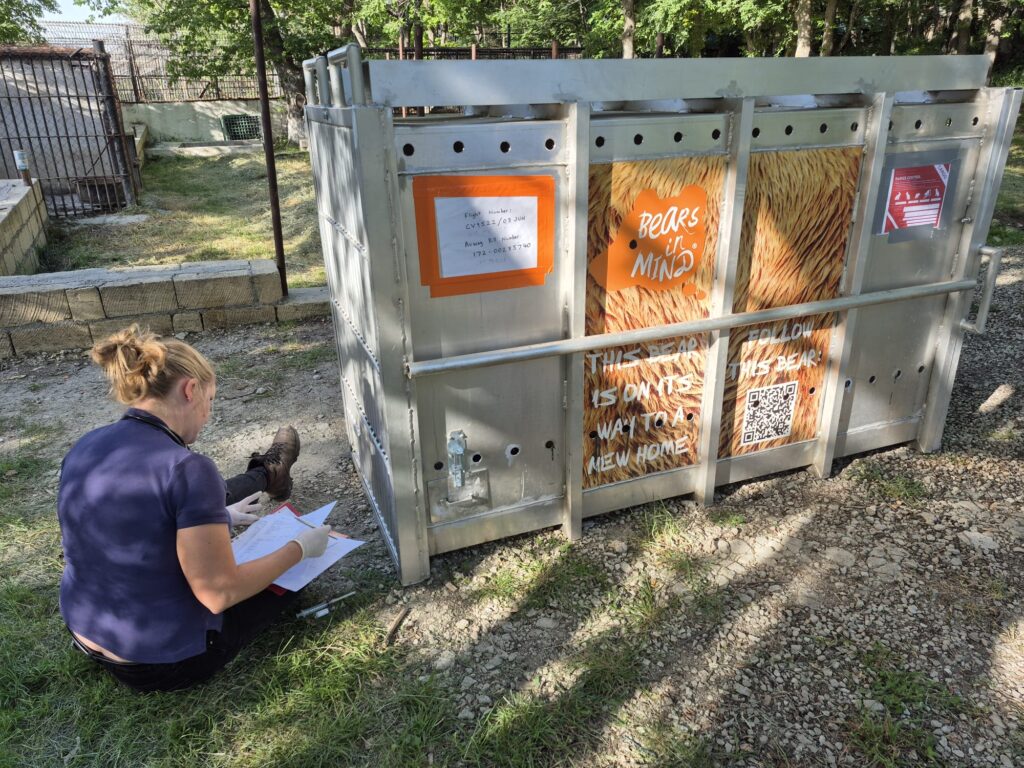
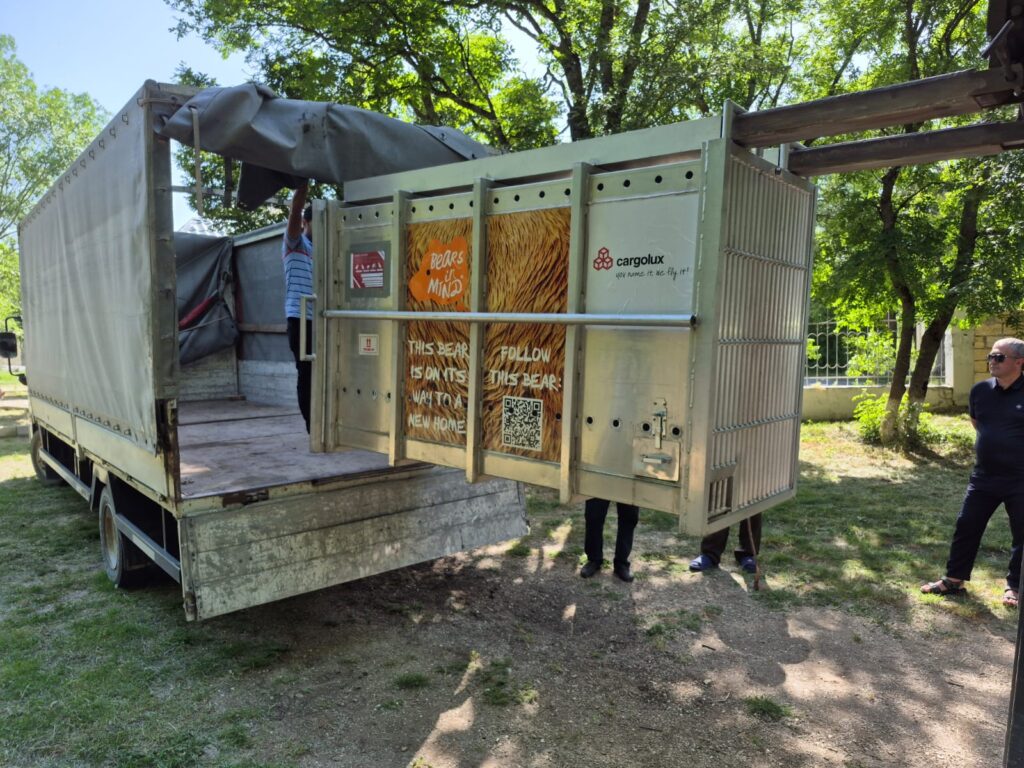
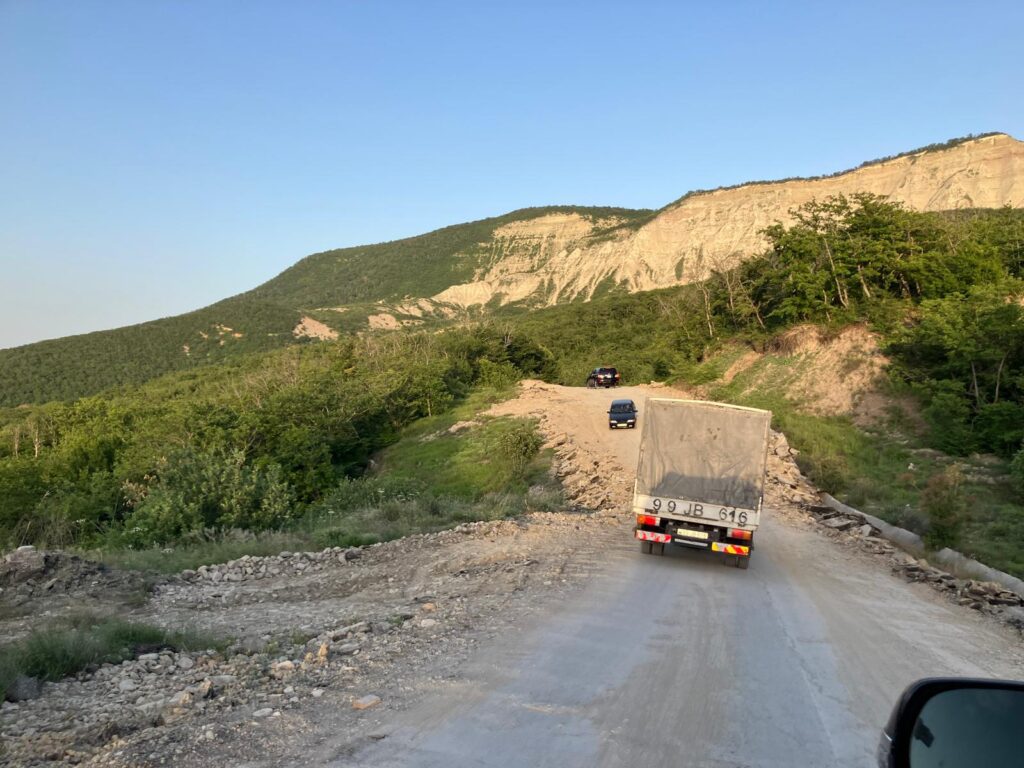
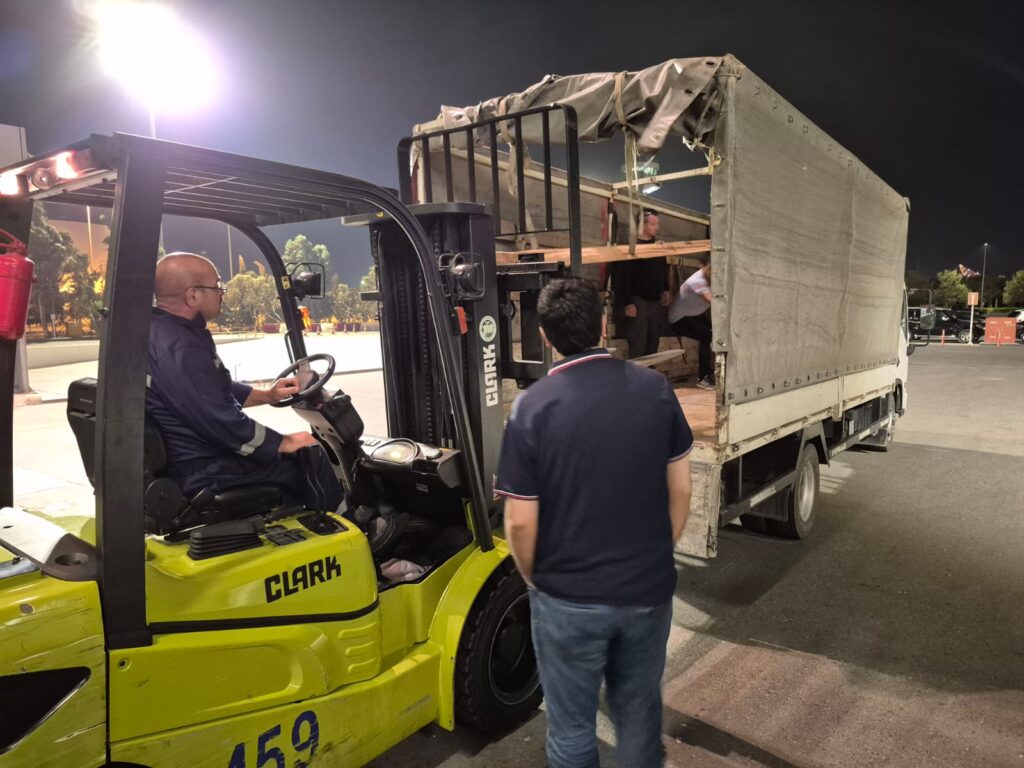
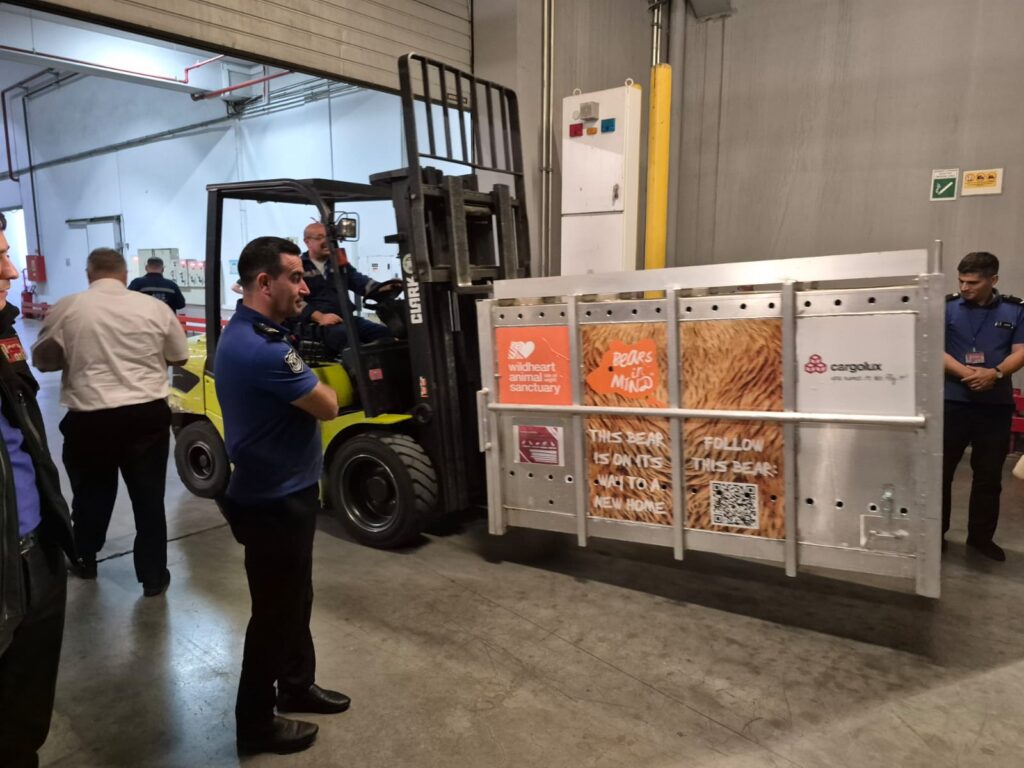
On June 3 they departed in the afternoon from Baku Airport with Cargolux, and arrived at Glasgow Prestwick Airport in the UK in the evening! From there they were loaded onto a van and it took another 12hrs to get the bears all the way down to their new home: the Wildheart Animal Sanctuary on the Isle of Wight! Mission accomplished!!
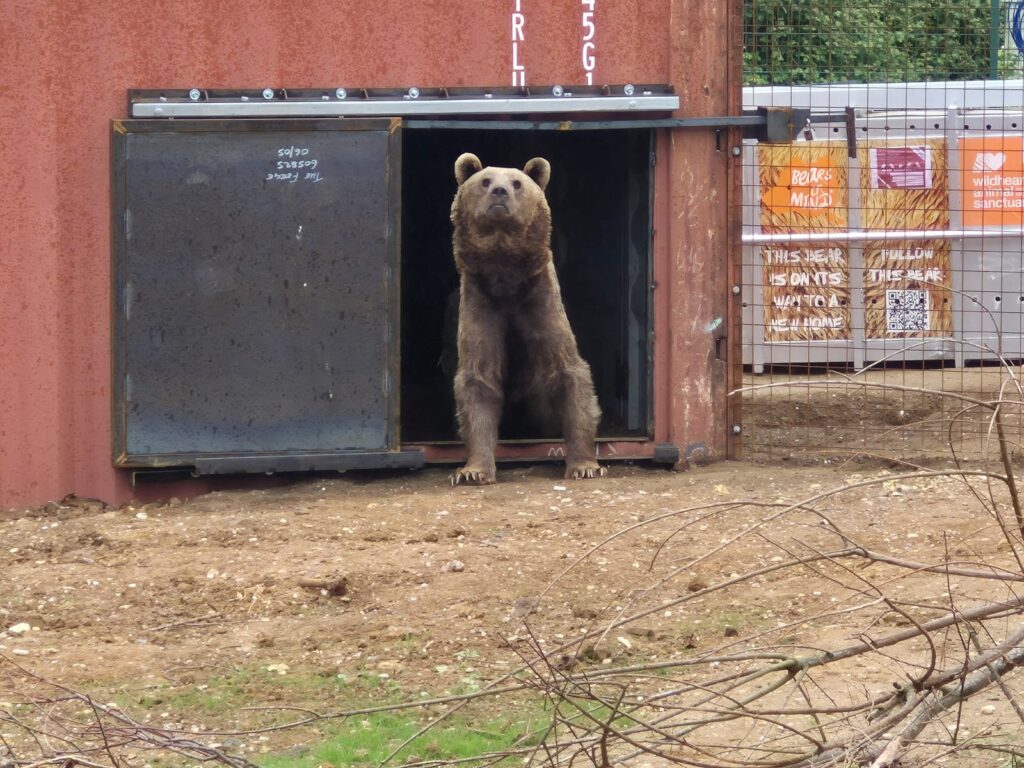
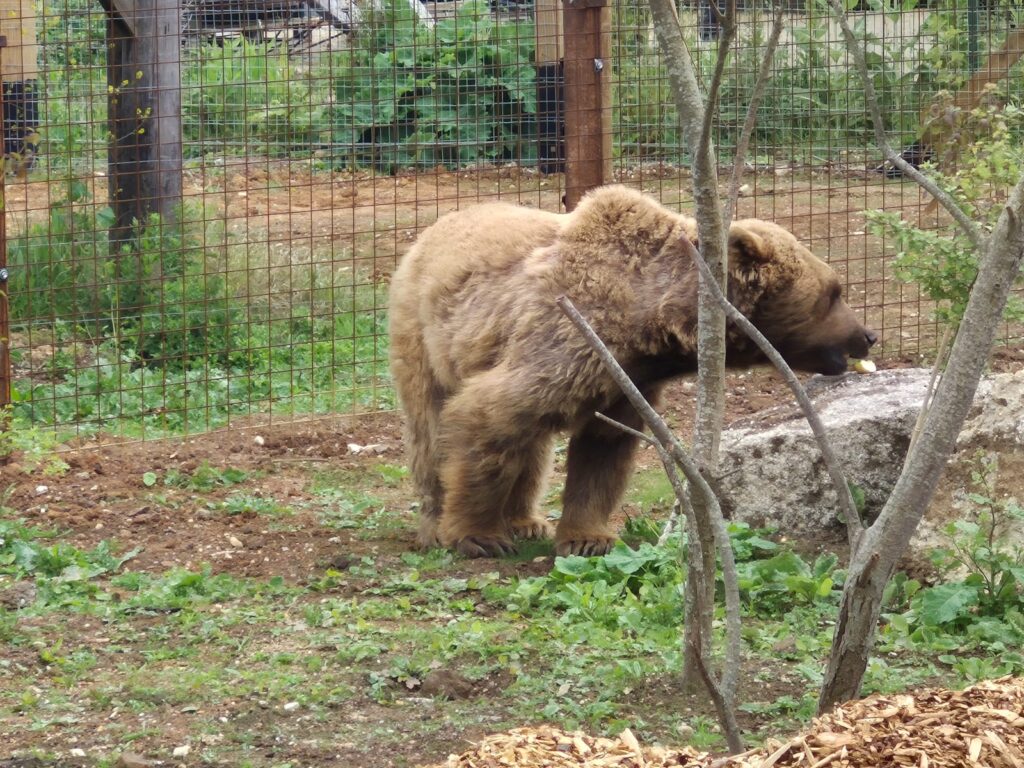
May 5, 2025 – Bears Roza & Taras from Ukraine
May 5 – Liberation Day in the Netherlands – Bears in Mind travelled to the Ukraine to pick up two brown bears named Taras & Roza. Thanks to the many donations from the crowdfunding campaign “de Beregoeiereis” organized by Bears in Mind, it became possible to rescue these two bears from their miserable existence in Ukraine and bring them to the Netherlands.
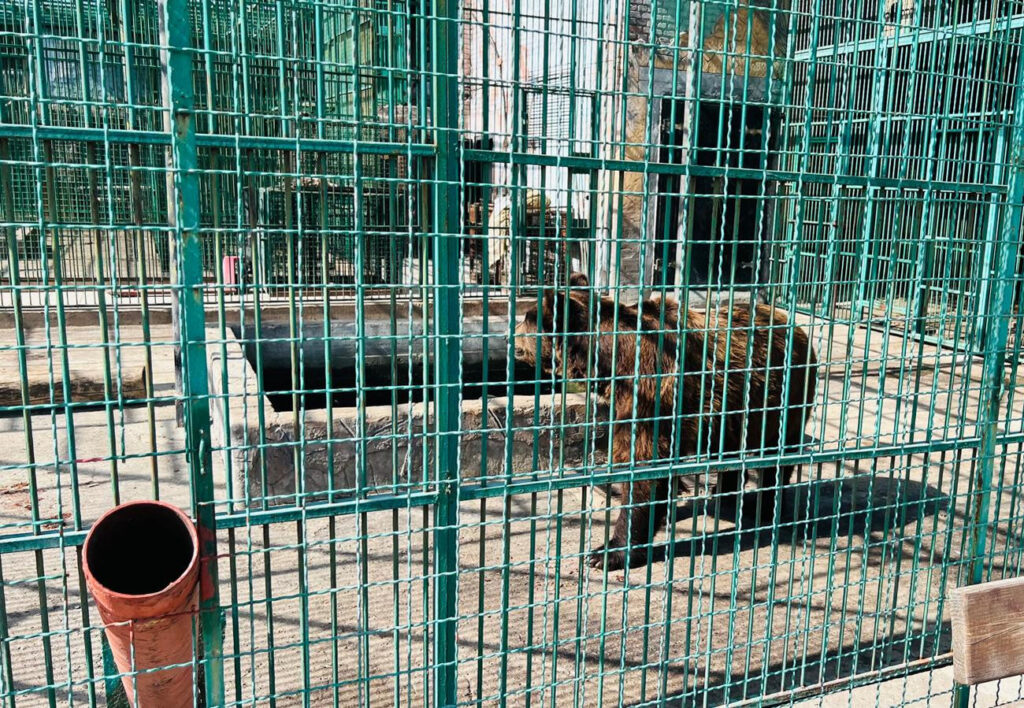

This initial rescue operation involved two brown bears located near the war front in Ukraine until the end of October 2024. The bears lived in a private zoo about 20 kilometers from the front line, and the park was hit multiple times by rockets in September and October. The situation became critical, the animals were in danger, and immediate action was needed. The swift evacuation at the end of October was carried out immediately by Natalyia Popova from the local organization Wild Animal Rescue, and bringing them to safety at the Bear Sanctuary Domazhyr for temporary shelter. Now that all the necessary paperwork for transport is completed, the veterinary requirements met, it was finally time for the two bears to move to their permanent home: the Bear Forest in Ouwehands Zoo in Rhenen, where they will take their first steps into the forest early June.
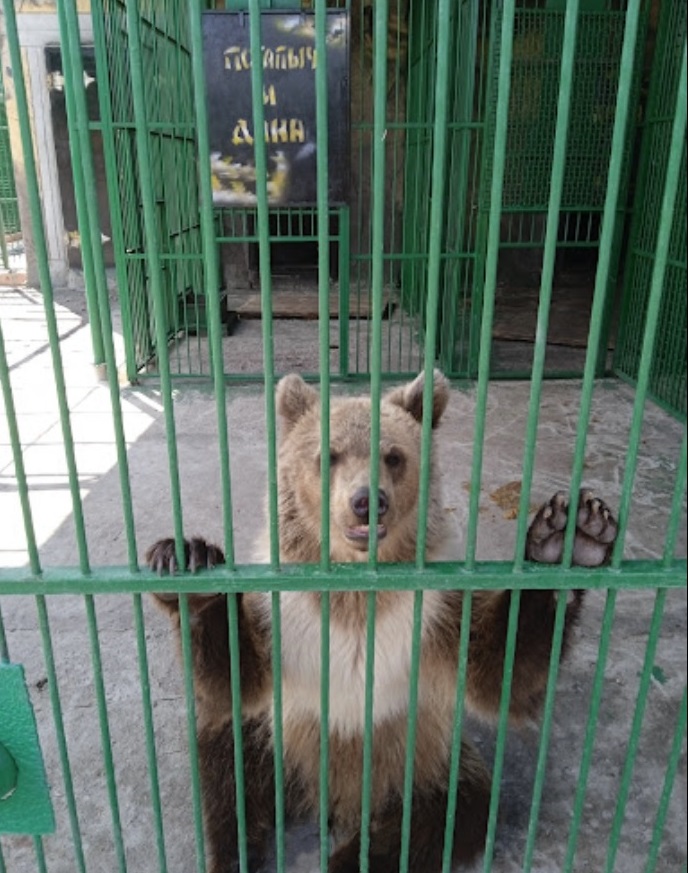
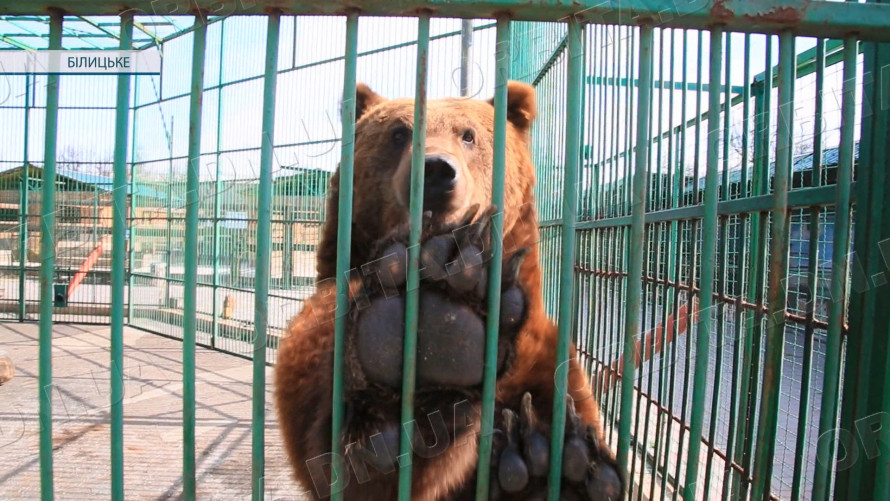
“We are very grateful to all donors and to our EARS partner Four Paws and the people working at Bear Sanctuary Domazhyr who helped make this rescue possible. That they were able to get the bears out of a war zone so we are able to give them a bear-worthy future in the Bear Forest,” says Ingrid Vermeulen, director of Bears in Mind.
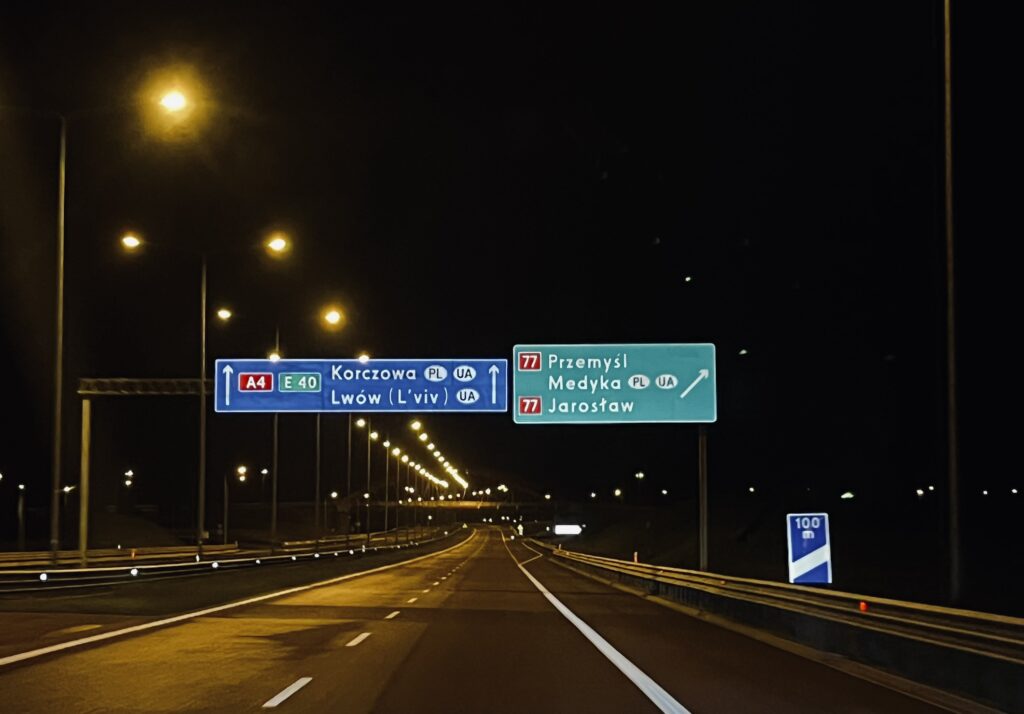

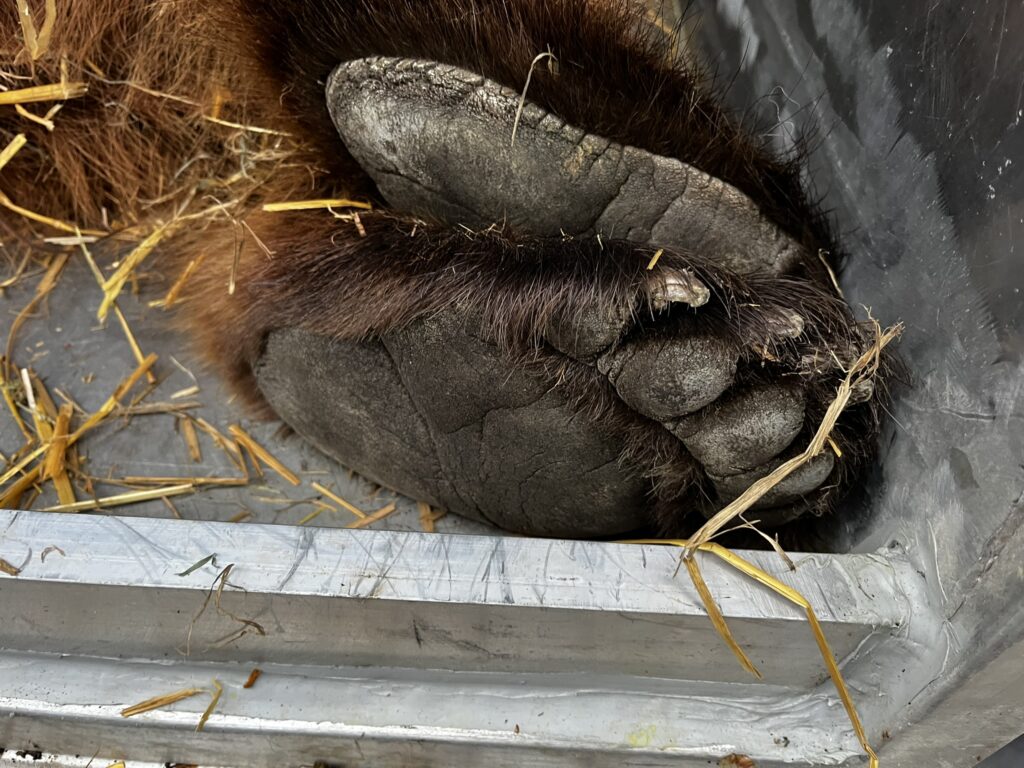
From Ukraine to the Netherlands
Zootransfer was hired for the job and Koen Cuyten, project manager from Bears in Mind, accompanied them. In Ukraine, the bears were loaded quickly and professionally at Domazhyr sanctuary. It took the team quite some time to cross the border out of Ukraine and into Poland, but eventually on the road in the EU, it went quickly and the bears were calm and well.
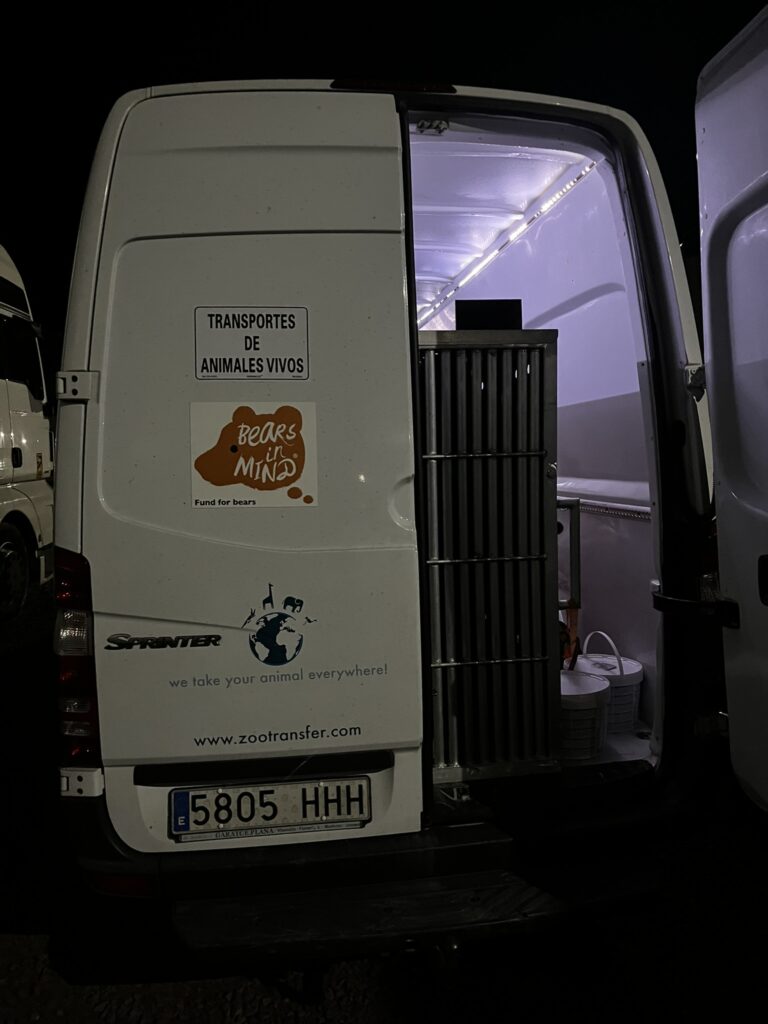

Arrival in the Bear Forest in Rhenen
Roza and Taras arrived at the Bear Forest in Ouwehands Zoo in Rhenen on Saturday morning at 2am. After the long journey, a comfortable indoor enclosure awaited them. They will stay in quarantine for about a month, after which they will have access to a two-hectare forest area that includes a waterfall, a pond, and various dens for hibernation. They will be fed a diet based on what wild bears eat throughout the year, stimulating their natural behavior. Roza and Taras get a second chance, a new beginning — a chance to be bears again.


April 25, 2025 – Bear Trishka from Kazakhstan
On December 2nd 2024, Bears in Mind received an urgent message about a 22-year old female brown bear named Trishka. She was kept in a cage as a pet behind a house in Karaganda, Kazakhstan. The owner contacted us directly to ask if we could help and take Trishka, since she could no longer care for her bear. The bear was in her care ever since she was a cub, supposedly after her mother was killed by poachers.
We never turn down a bear, but knew it was going to be a race against the clock. The house and bear cage would be demolished in March 2025, the owner was going to leave the country and couldn’t take Trishka with her. Either we would rescue her in time or she might face euthanasia… So, we started immediately!



Firstly, securing a temporary new home for this beautiful bear. As we have been working closely with our friends at the Wildlife Rescue Center ‘Natuurhulpcentrum‘ in Belgium for a long time, it was quickly agreed Trishka could temporarily go to them and from there we would be able to take our time and find a good permanent home for her elsewhere.
Applying for the mandatory CITES Export and Import permits was next. This went surprisingly well and they were issued fast. In the meantime, to be able to import a bear into Belgium, Trishka needed to be vaccinated against Rabies and a subsequent serology test needed to be done. The results came in at the end of February, which were good so we could continue our mission!
In the meantime, the house of the owner of Trishka and the bear cage were demolished to start a large housing development project. It was agreed by the owner and the developer to have a small temporary cage built for Trishka, elsewhere, so the project was not delayed and we could continue preparing her for her relocation to Belgium.
Early April, we prepared our special bear transport crate to be send to Kazakhstan. Our partner Zoologistics at Schiphol Airport in Amsterdam sent the crate ahead of the transfer to Astana on the 12th of April.
On April 24, one day before Trishka arrived in Frankfurt, the green light has been given in Astana and all paperwork was in order. Special thanks to the hard work of Mr Qadyr Baimukhanov from the local agent Globalink in Kazakhstan and FlyFauna (who handled documents when Trishka arrived at Frankfurt DE in the EU).
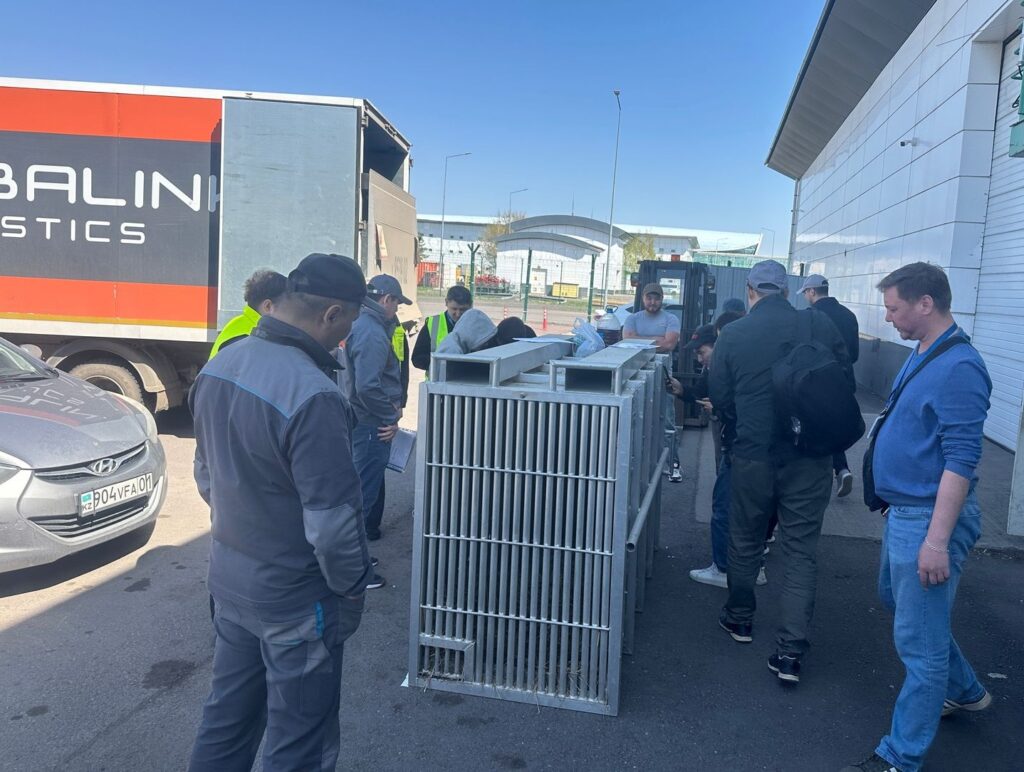

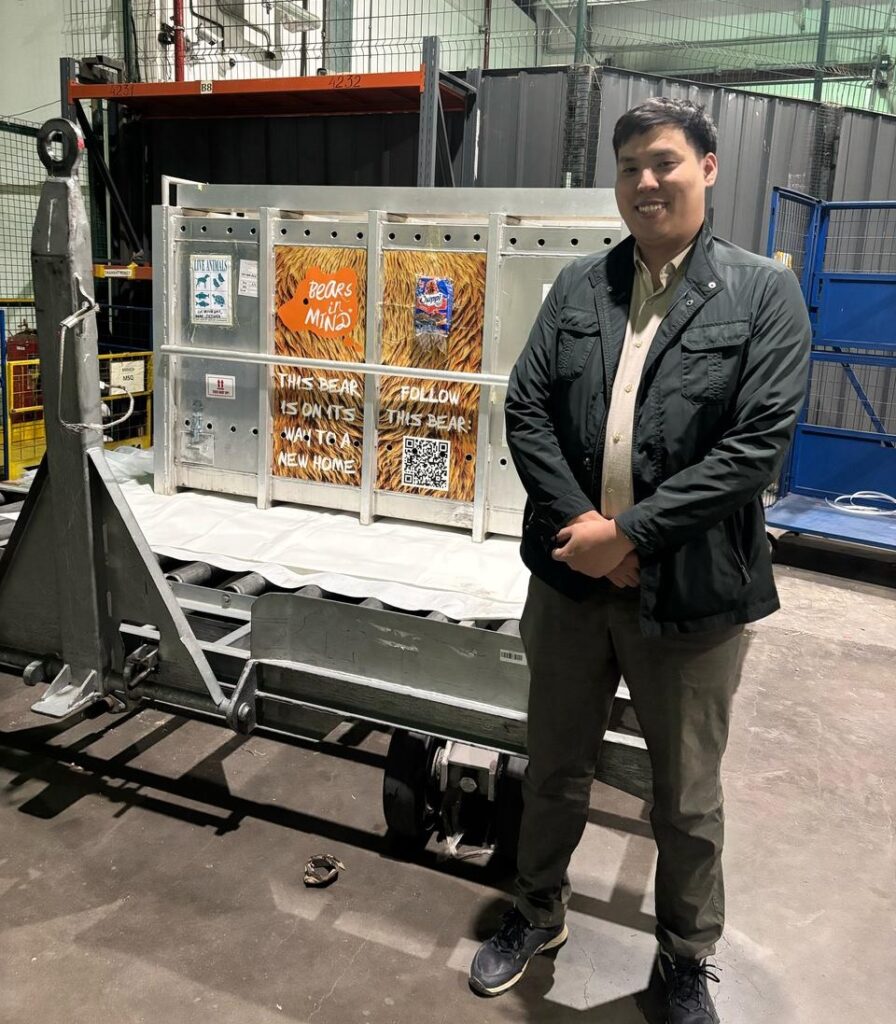
On the morning of April 25 bear Trishka arrived at the Animal Lounge of Frankfurt Airport! We inspected her in the quarantine building and she was doing fine after such a long yourney. She was eager to get out of the crate of course! After several hours of vet checks and custom clearance, we could finally take her on the road to Belgium. The team of Bears in Mind and Natuurhulpcentrum arrived at the wildlife rescue center in Oudsbergen, Belgium around 17:00hrs. Trishka couldn’t wait to get out! Although many animals are careful and hesitant to get out of the relative safety of the transport cage, to move into the new enclosure, Trishka was out in seconds to explore her new surrounding!
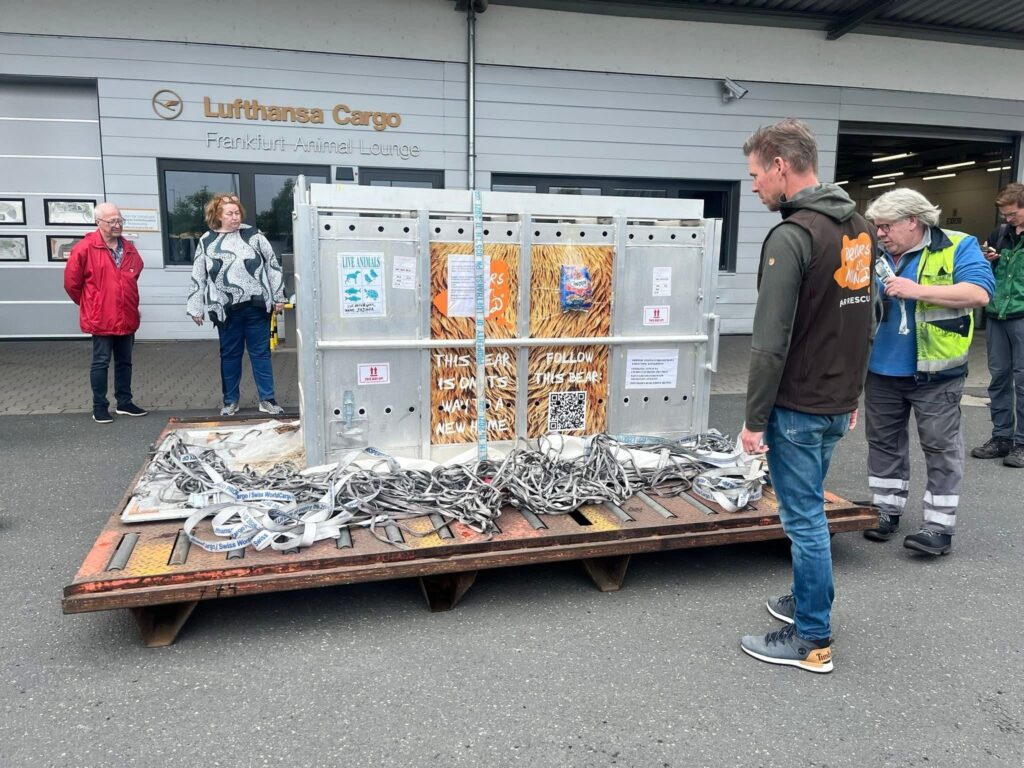
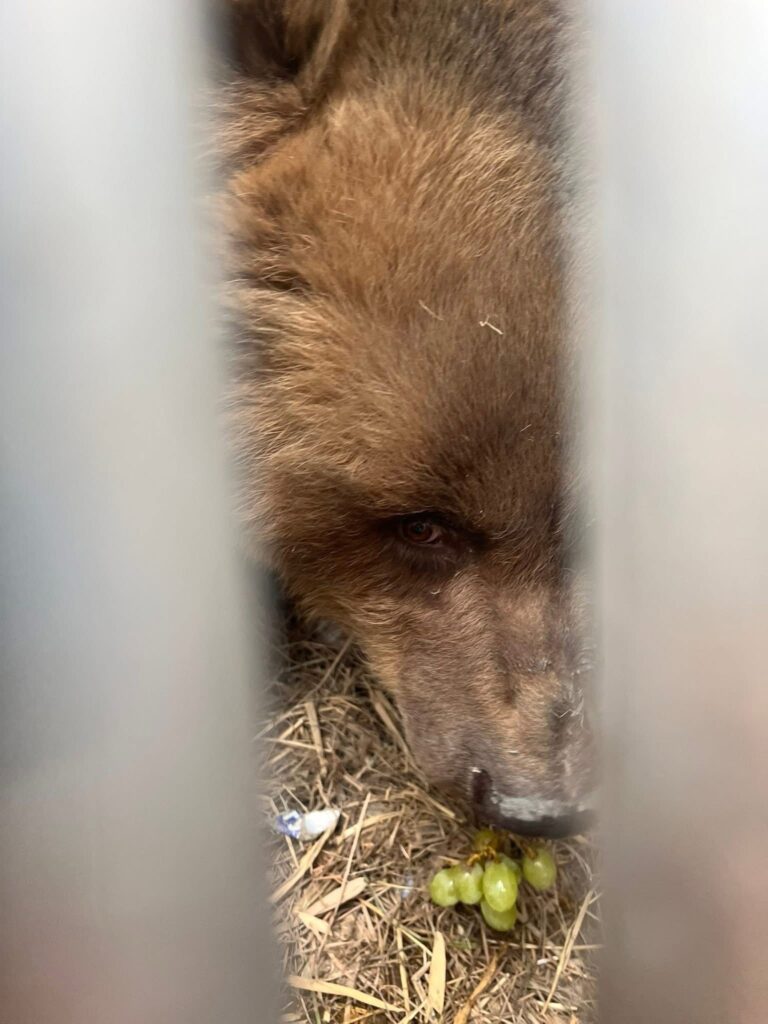
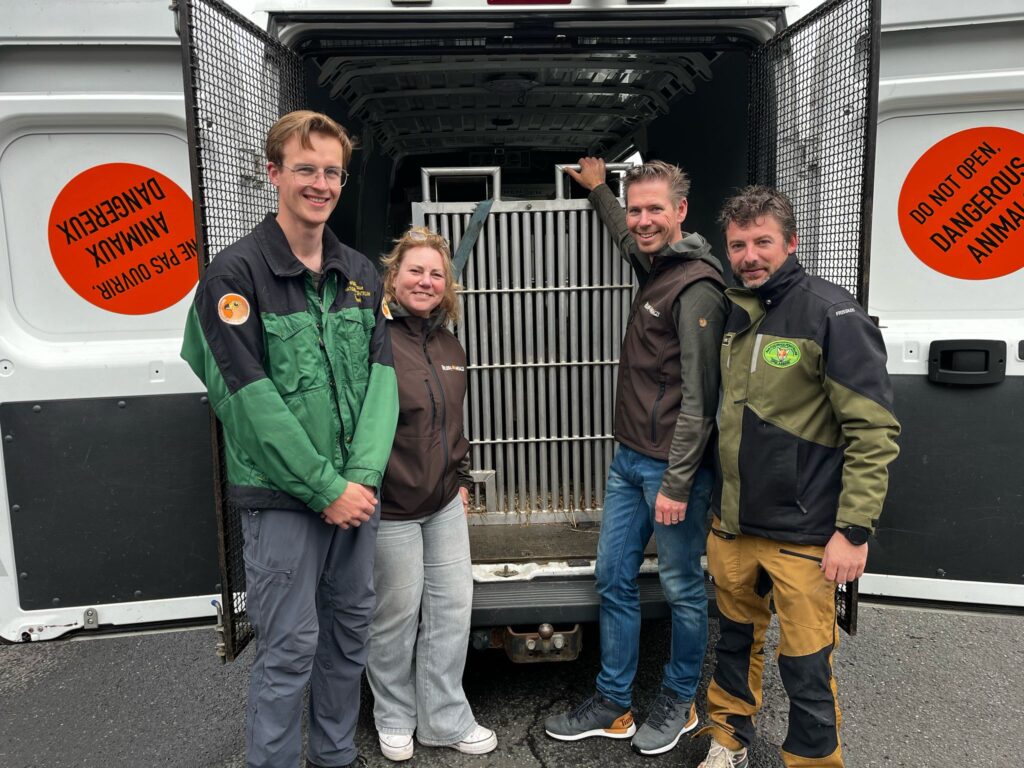
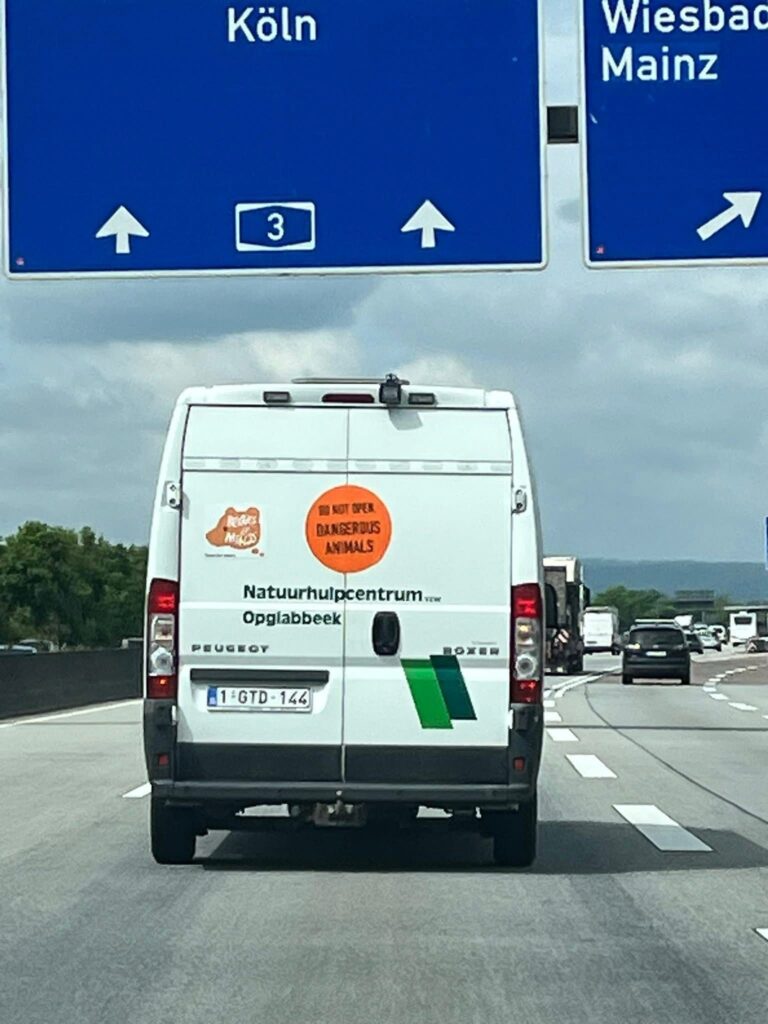
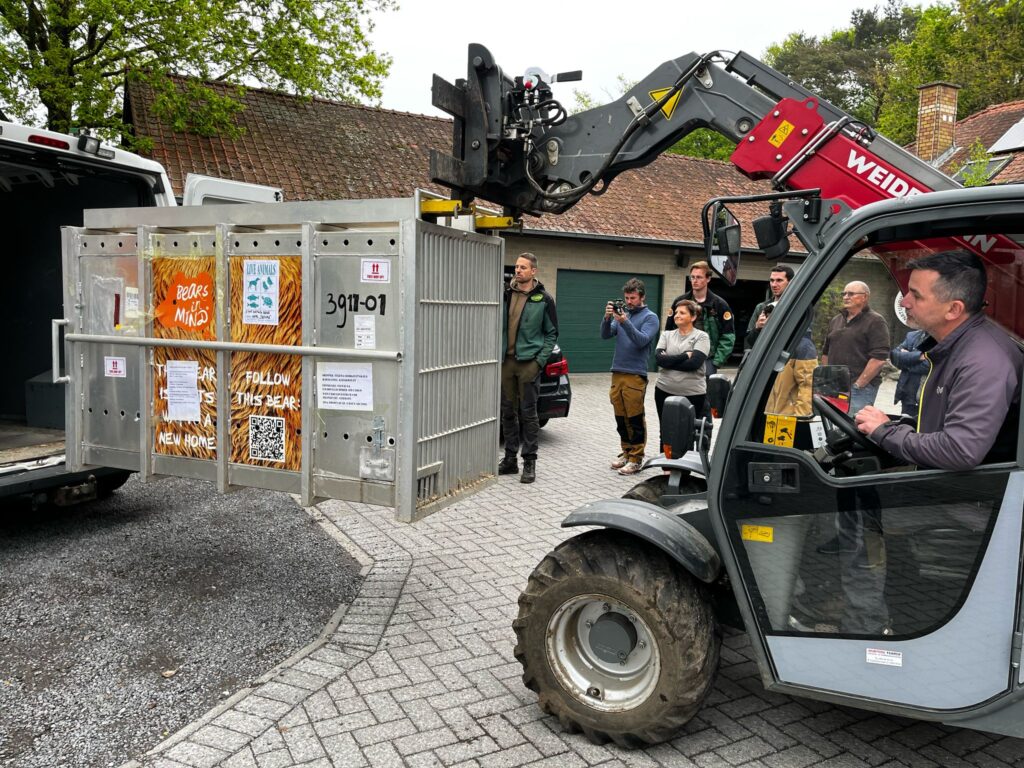
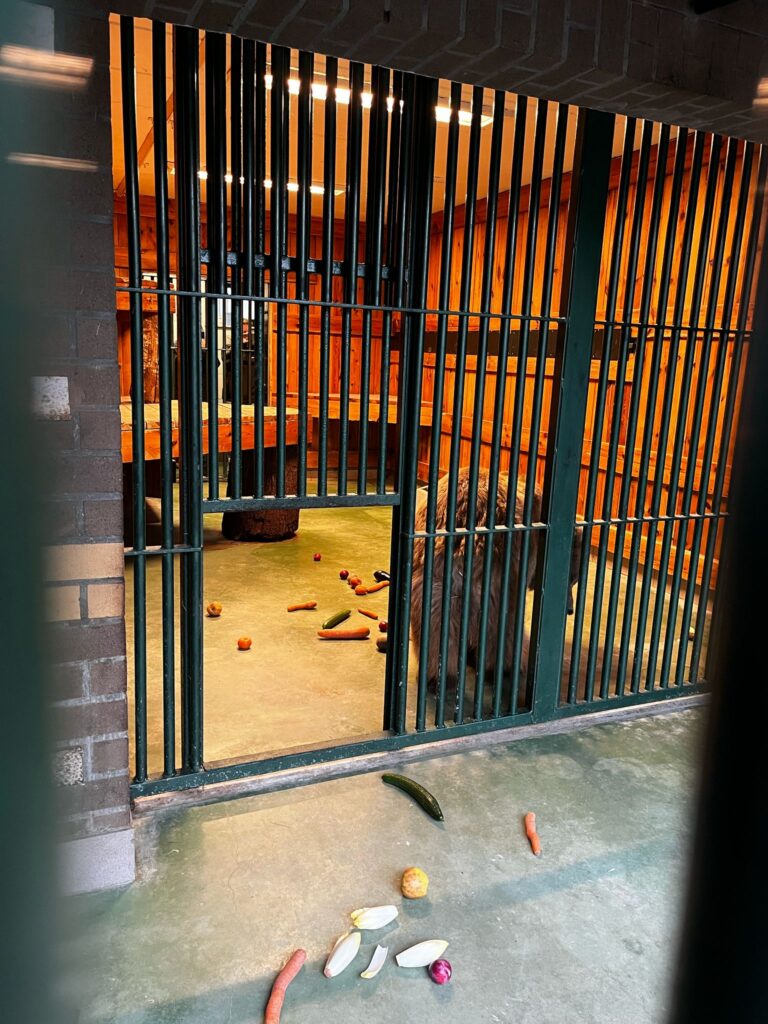
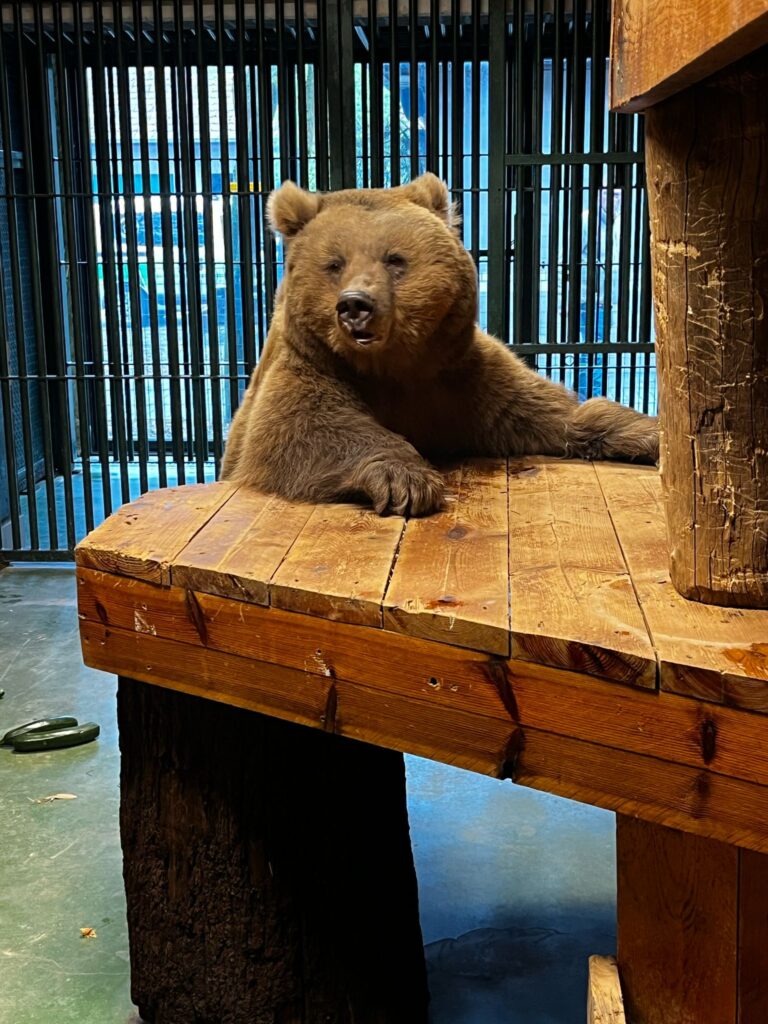
Trishka will get a vet check soon and she will stay in mandatory quarantine for 3 months, because she has come from outside the EU. After that, she will move to her temporary outdoor enclosure at Natuurhulpcentrum. In the meantime, Bears in Mind will monitor her health and behaviour closely in order to look into the options for a permanent home later this year.
This mission turned out to be a great success, thanks to the hard work and dedication of all involved and a special thanks to LUFTHANSA for making this possible!ved!


